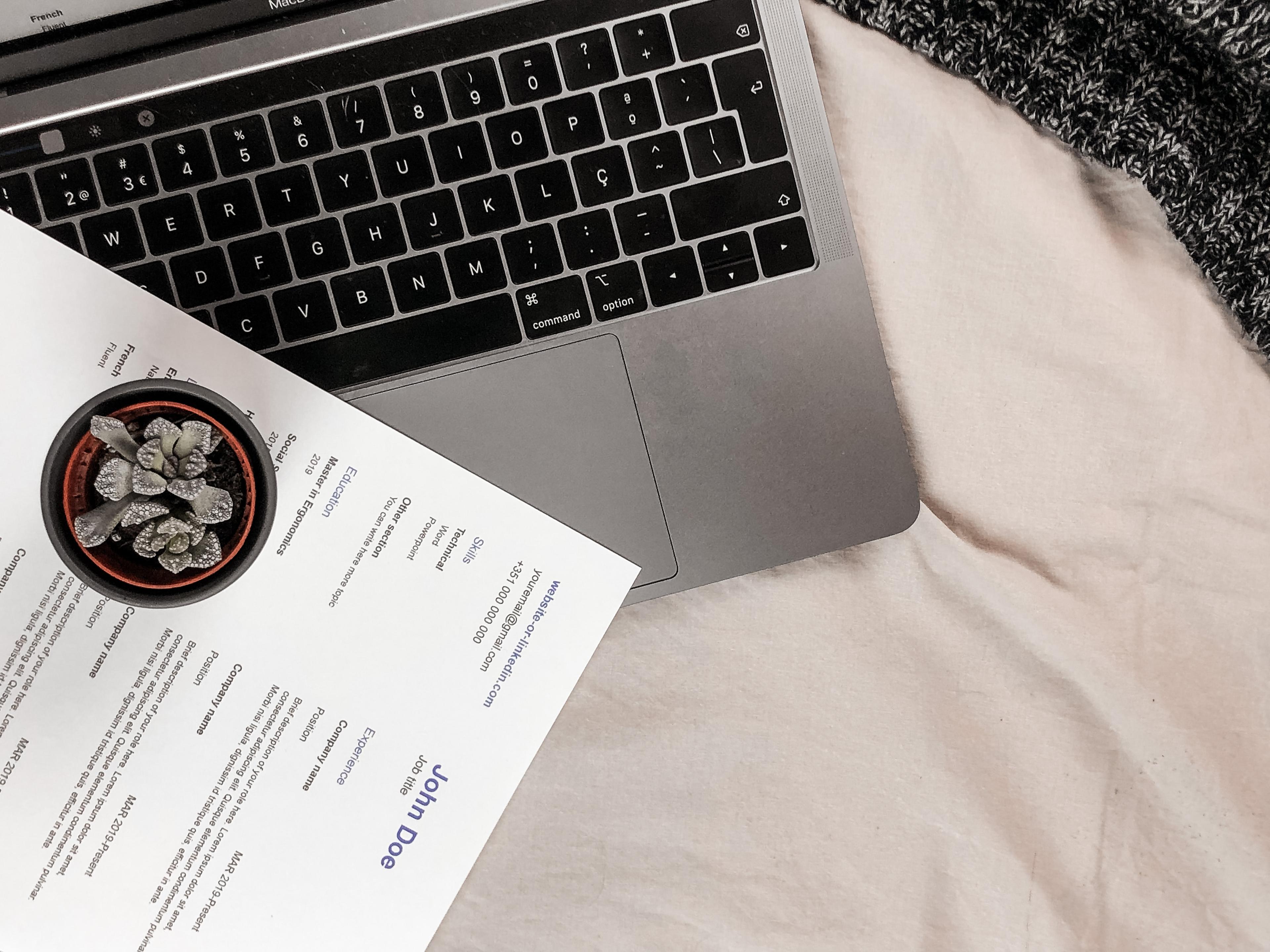Superday Interview: What to Expect, How to Prepare, and How to Stand Out
Wondering how to ace your Superday interview? Learn what to expect, how to prepare, and how to stand out in final-round interviews at top firms.
Posted August 15, 2025

Table of Contents
If you’ve made it to a Superday interview, you’re likely in the final stages of the hiring process for some of the most competitive roles out there. Companies such as Goldman Sachs, Morgan Stanley, and McKinsey use this rigorous final round to make their final decisions. The Superday interview process is intense, fast-paced, and can last several hours with multiple back-to-back interviews.
In the context of investment banking, this is often referred to as the investment banking superday, which is a crucial and intensive part of the North American recruitment process. The Superday is considered the main event of the recruitment process, serving as the highlight and culmination of all previous selection steps. Whether you’re aiming for a position in investment banking, consulting, or another competitive industry, the stakes are high.
This guide breaks down what to expect, how to prepare, and what it takes to stand out. Whether you’re aiming for investment banking, consulting, or another competitive role, this is everything you need to know to walk into your Superday ready.
What Is a Superday Interview?
A Superday interview is the final stage in the recruitment process for competitive roles in the finance industry, including investment banking, private equity, and consulting. This day consists of back-to-back interviews with several employees at the company, typically lasting several hours.
Candidates for positions such as summer analysts or MBA summer associates can expect multiple interviews covering behavioral questions, technical questions, and firm-specific discussions. A Superday is a packed day for both candidates and interviewers, with people interviewing candidates in rapid succession. Investment banks, such as Goldman Sachs, Morgan Stanley, and other major firms, are key organizations that conduct Superday interviews for front-office roles. Other companies that use Superday interviews include McKinsey, BCG, and other firms recruiting for highly competitive roles. The format is designed to test how well candidates handle pressure, manage time, and communicate with different stakeholders in a formal setting. Additionally, interviewers assess candidates’ fit for the company culture, which is a critical factor in the hiring decision. Regional offices may have different schedules or hold fewer Superdays compared to main offices, often with different candidate volumes and logistics.
Offers are usually made shortly after the Superday. Candidates who perform well may hear back from the recruiting team within 24 to 48 hours. Others might be placed on hold or waitlisted, especially if final decisions are still being made.
Read: How to Answer “Why This Firm?” and “Why Investment Banking?” in Interviews
What to Expect During a Superday Interview
Format and Schedule Overview
A typical Superday interview involves three to six interviews in a single day. Each interview can last anywhere from 30 to 60 minutes. There are usually short breaks between them. Some firms schedule Superday events at their offices, allowing interviews and debriefs to occur in person, while others use Zoom or Microsoft Teams, especially for remote roles or during off-cycle periods. In-person meetings can be more impactful for establishing personal connections and may influence the overall experience. You can expect a mix of behavioral interviews, technical interviews, market-based questions, and even mini case studies, depending on the company and position. These interviews are intentionally scheduled to replicate the pressure and pace of the job. To ensure a smooth experience, candidates should figure out logistics such as dates, times, and locations beforehand.
During a Superday, candidates usually meet with several employees from different levels of seniority. You may interview with analysts, associates, VPs, and senior bankers, including managing directors. Some interviews may be one-on-one, while others may involve two interviewers. Each interviewer may focus on different aspects of your background or technical knowledge.
Post-Superday Timeline
If you’re selected, you’ll typically hear back from the recruiting team within a few days. Most offers are made within 24 to 48 hours, but some candidates may wait a few weeks for feedback after the initial interview stages. In some cases, especially when final decisions are tight, you may be placed on a waitlist. This is often referred to as a soft rejection. Even though the firm might not prioritize you initially, there’s still a chance you could be contacted if another candidate declines. After the Superday, it may take several weeks to receive a final decision, particularly if there are scheduling or logistical delays.
The offer rate after Superday interviews typically lies between 30-50%, reflecting the competitive nature of these roles. It's important to understand the exact conversion rate from interviews to offers, as this can help you gauge your chances more precisely. Additionally, the hire rate, which represents the percentage of candidates who receive and accept job offers, can differ from the offer rate and is a key metric in evaluating overall success in the hiring process.
How to Prepare for a Superday Interview
A successful superday interview starts long before the actual event. Being well prepared is crucial for success. Preparing across four key areas, your resume, behavioral questions, technical knowledge, and interviewer engagement, will help you show up ready and confident. To further enhance your preparation, consider enrolling in a course or using an investment banking interview guide. These resources can provide structured training, example responses, and insights into what employers are looking for, ultimately improving your chances of success. Review previous interviews to identify common questions and learn from your past experiences, which can help you anticipate similar questions and improve your performance. Candidates should practice responses to common interview questions to ensure their answers sound natural and fluid, which can make a significant difference in their performance.
Read: How to Nail Common Investment Banking Interview Question (“Why This Firm?”)
Know Your Resume Cold
Your resume isn’t just a formality. It’s the foundation of your Superday. Every bullet point is fair game, especially in technical interviews and conversations with senior bankers.
Here’s what to prepare for:
- Be ready to explain the “why” behind every role or experience listed.
- Be prepared to discuss how your experience aligns with a specific team or sector within the firm, and how you can contribute as a sector expert.
- Know your metrics. If you increased efficiency or revenue, quantify the impact.
- Review your tools. If you mentioned Excel, SQL, or a valuation model, be prepared to explain exactly how you used them.
- Be honest. Avoid exaggeration; interviewers can easily spot vague or inflated claims.
Examples of follow-up questions:
- “What was your exact role on that deal?”
- “What was the biggest challenge you faced in that internship?”
- “What would you do differently if you could redo that project?”
This level of detail shows that you’ve reflected on your past experiences and can connect them to the job you’re interviewing for.
Practice Behavioral Questions
Behavioral interviews are used to evaluate how you approach teamwork, pressure, and leadership. These are core to determining fit within the team, especially for roles where you’ll be working long hours with a small group.
Use the STAR method (Situation, Task, Action, Result) to structure your answers clearly. The goal is to tell a concise story that shows how you think, act, and learn. It’s important to be able to talk through your experiences clearly and engage in meaningful dialogue with interviewers, as this leaves a positive impression. Remember, making a good impression during both formal interviews and informal interactions, such as networking receptions or casual conversations, can significantly improve your chances of success. This method is particularly effective for behavioral interview questions, as it helps candidates provide structured and impactful responses.
Common behavioral questions to prepare for:
- “Tell me about a time you led a team under pressure.”
- “How did you handle a disagreement with someone in your group?”
- “Give an example of a time you failed. What did you learn?”
- “What’s one project you’re proud of, and why?”
Focus your stories on:
- Leadership – When you took the initiative or guided others
- Communication – When you had to align people or explain something complex
- Teamwork – When you worked across differences or resolved friction
Note: Interviewers will often ask follow-up questions to dig deeper, so your answers need to be grounded in real outcomes, not hypotheticals.
Prep for Technical or Case Questions
In finance roles, technical interviews are standard, especially if you’re interviewing for investment banking or private equity. The questions test your technical knowledge, but more importantly, they assess whether you understand the logic behind your answers. During Superday interviews, candidates may face the most technically challenging questions, especially from first and second-year analysts who often pose complex and deliberately difficult technical questions to assess expertise. Candidates should be ready to answer at least one challenging technical question that tests their job-specific knowledge and problem-solving skills. Interviewees often struggle when they encounter technical questions they cannot answer, so they should prepare thoroughly for technical content to avoid being caught off guard.
You should be able to:
- Walk through a full discounted cash flow (DCF) model
- Explain and compare valuation methods (comps, precedent transactions, LBO, DCF)
- Differentiate between enterprise value and equity value
- Discuss the impact of terminal value and free cash flow assumptions
Additional finance topics to study:
- How to calculate and interpret net working capital
- How $10 of depreciation flows through the three financial statements
- The basics of a leveraged buyout and why it uses debt
- Recent market trends, IPOs, or M&A deals (especially if relevant to the firm)
In consulting roles, expect case interviews. You’ll need to:
- Break down a business problem into clear components
- Make assumptions and calculate rough figures
- Communicate your reasoning in a clear, structured way
Note: Practice with live mock cases whenever possible; structured thinking under pressure improves with repetition.
Read: Investment Banking Technical Interview Questions & Answers
Prepare Questions for Interviewers
You’ll be expected to ask questions in each interview. This isn’t just polite, it’s another chance to show your interest in the company and your ability to think critically. Avoid general questions like “What’s the culture like?” or “What’s your training program?” Instead, ask things that show you’ve done your homework.
Stronger examples:
- “What types of deals has your group focused on this year, and how has that changed recently?”
- “How do junior bankers or associates typically receive feedback?”
- “What’s one thing you wish you had known before joining the firm?”
- Ask personal questions, such as “What has been your most rewarding project here?” or “How would you describe your team’s dynamic?” to show genuine interest in the interviewer’s experience and demonstrate compatibility with the team.
Note: If you’re interviewing virtually, check your environment beforehand. Pick a quiet place with minimal background noise, and test your tech setup to avoid disruptions. Even for virtual Superday events, impressions matter, from how you show up on camera to the energy in your voice.
Superday Interview Tips From Real Candidates and Coaches
Superday interviews are designed to be intense. You’re often meeting with multiple employees over several hours, and firms use this format to test your communication, consistency, and endurance. To maximize your chances of success, it's important to apply to many firms, as outcomes can vary widely between organizations. To put your best foot forward during Superday interviews, it’s important to dress well and present yourself confidently. Based on insights from Leland coaches and candidates who’ve completed the investment banking interview process, here are the top tips that can help you stand out, including showing a strong interest in each firm during your interviews.
Stay Consistent Across Interviews
You’ll likely meet with a mix of analysts, associates, and senior bankers. Even if you’re asked similar questions multiple times, your answers should stay aligned. Interviewers often compare notes at the end of the day. If one person hears a completely different story from another, it raises questions. Consistency doesn’t mean repeating yourself word for word. It means keeping your career goals, motivations, and deal interests focused. If you’re excited about healthcare banking in the first interview, don’t shift to tech in the next unless you have a clear reason.
How to stay consistent:
- Stick to one clear, long-term goal and connect it to the role
- Keep your “Why this firm?” answer steady and specific
- Practice walking through your resume the same way each time
Bring Energy, Especially If It's the End of the Day
Superday events are intentionally scheduled to test your stamina. Your fifth interview might be with a senior banker or someone who gives final input on offer decisions. If your focus fades or your answers get sloppy, it can work against you, no matter how strong your earlier interviews were. Maintaining energy doesn’t mean acting over-the-top. It means staying alert, listening carefully, and showing continued interest in the role.
How to stay sharp across multiple interviews:
- Keep water nearby to stay hydrated
- Bring a notepad to jot down quick reminders between interviews
- Take short breaks when allowed and regroup mentally
Interviewers can tell when a candidate checks out after a few rounds. Showing that you can stay composed under pressure leaves a strong impression. Even when fatigue sets in, make sure to put your best foot forward in every interview to project confidence and professionalism.
Know the Firm Inside and Out
You’ll almost always get a version of “Why our firm?” or “What interests you about our group?” This is a common Superday filter question, especially in final round interviews with senior bankers. Generic answers about prestige, culture, or “learning opportunities” don’t work. If you're interviewing at multiple banks, you need to tailor your answer for each firm.
What to include:
- Recent deals the group has worked on
- How the team’s structure or culture aligns with your goals
- Unique aspects of the firm’s approach to training or mentorship
Example: “I read about your team’s work on the [Company A – Company B] acquisition. I’m particularly interested in how your group focuses on cross-border M&A, and I’d like to develop that skill set early in my career.”
Note: Being specific shows the recruiting team that you did your research and are genuinely interested in the job, not just the offer.
Treat Everyone Like They're Evaluating You
Superdays include more than just formal interviews. You may have coffee chats, lunches, or brief encounters with junior staff and coordinators. These aren’t just social interactions; they’re part of the evaluation process. Networking events are informal opportunities to assess candidates’ social skills and professionalism, which can influence the overall impression they leave on the recruiting team.
The recruiting team often asks everyone involved, assistants, receptionists, and lunch hosts, for feedback. It's also important to keep the recruiting team aware of any special circumstances, such as competing offers or interview format preferences, to ensure smooth communication throughout the process.
What firms are watching for:
- Professionalism in informal settings
- Respect for junior team members
- How you treat people when no one’s watching
Note: This applies even more during virtual Superday interviews on Microsoft Teams or Zoom. Be polite from the moment you enter the room. Greet each person, stay engaged, and follow up with thank-you notes or messages right after.
Common Mistakes to Avoid on Superday
Even strong candidates can lose momentum on Superday interviews by making avoidable errors. One common mistake is not attending as many Superdays as possible. Participating in multiple Superdays can significantly improve your interview performance and increase your chances of receiving an offer. Below are five of the most common issues that come up, each of which can hurt your chances during the final round of the recruitment process.
Sounding Overly Rehearsed or Robotic
Practicing your behavioral questions and technical questions is essential, but memorizing your answers word-for-word can backfire. If your tone is flat or your responses sound scripted, interviewers may question whether you're thinking through the conversation. Your responses should sound like you're speaking to a person, not reading a script.
How to fix it:
- Practice with live mock interviews, not just in front of a mirror
- Focus on the core points of your story, not the exact wording
- Be ready to adapt if an interviewer interrupts or changes direction
Weak Responses to “Why This Firm?”
This is one of the most common superday interview questions, and it’s often asked more than once. Generic answers, like saying you’re drawn to the firm's “reputation” or “culture,” don’t work. Interviewers expect specific examples that show you’ve done your research. If you're interviewing at multiple banks or other firms, make sure each answer is tailored.
Better approach:
- Mention a recent deal, team structure, or firm initiative
- Connect your goals with what the group is known for
- Avoid copying phrases from the firm's website
Ignoring the Differences in Interviewer Tone and Style
Each person you meet may interview differently. Some will be conversational. Others will go straight into technical interviews. Failing to adjust your tone or pace to match theirs can lead to miscommunication or come across as poor awareness. Flexibility shows maturity, and interviewers take note.
Expert Tip: Pay attention to how each interviewer leads the conversation. If one is quiet and serious, don’t try to fill every pause with talking. If another is high-energy, match that energy with clarity and focus.
Skipping Thank-You Emails to Interviewers Immediately After
Every interviewer expects a brief, professional follow-up. Skipping this step, especially during a superday interview, can send the wrong message. It’s not just about manners. It shows attention to detail, respect for the process, and genuine interest. Some candidates lose out simply because they didn’t follow up, while other candidates did.
What to do:
- Send a short thank-you note the same day
- Mention one thing you appreciated or learned during the conversation
- Keep it professional, clear, and error-free
Burning Out by the Final Round and Losing Focus
Superdays can stretch across several hours. If you lose focus toward the end, it can undo the strong impression you made early on. This matters especially if your final interview is with a senior banker, hiring manager, or someone from the recruiting team.
Ways to stay sharp:
- Bring water and a small snack if allowed
- Stay mentally present, even if you’re tired
- Remind yourself that every round counts equally
Note: If the last interviewer feels like you’ve mentally checked out, that feedback could impact your offer outcome, even if earlier interviews went well. Avoiding these mistakes doesn’t take much, but it does require planning and awareness. If you’re not sure where you stand or how you come across, practicing with a Leland coach can help you identify blind spots and fix them before the real interviews.
5 Expert Tips to Excel in Your Superday Interviews
1. Manage Your Energy During Back-to-Back Interviews
A Superday often involves multiple interviews in a single day. Staying focused throughout is key. Use short mental resets between rounds, like closing your eyes for a few seconds to clear your mind. Stay hydrated and use breaks to jot down key insights, keeping your energy and focus high.
2. Bridge Between Technical and Behavioral Questions
Superday interviews blend technical and behavioral questions. After answering technical questions (e.g., about free cash flow), connect them to real-world experiences. When faced with behavioral questions, tie your answers back to technical tasks you’ve handled, showing both skill and insight.
3. Tell Your Deal Experience as a “Deal Flow Story”
Rather than simply listing your deal experience, frame it as a story. Walk the interviewer through your role in a deal, highlighting challenges you faced and how you resolved them. For instance, explain how you worked through terminal value assumptions in an LBO model and the impact it had.
4. Present Hypothetical Scenarios to Show Critical Thinking
In behavioral interviews, use hypothetical scenarios to demonstrate your problem-solving skills. If asked about leadership, frame your answer around how you would handle a challenging situation, based on your past experiences. This shows you can think on your feet and adapt.
5. Adapt to Each Interviewer’s Style
Each interviewer may have a different style. If they’re formal, keep your answers direct and concise. If they’re more casual, feel free to elaborate and share personal insights. This shows you can adjust your communication style to connect with different people in a Superday setting.
Read: Mastering the Interview: Top 30 Questions Asked in Investment Bank Interviews
The Bottom Line
Making it to the Superday interview stage means you've already passed the first round interview and are now being seriously considered by the recruiting team. At this point, firms are choosing between candidates who are all qualified on paper. What sets people apart now is preparation, focus, and how they carry themselves across multiple interviews. Success during a final interview often comes down to consistency in your story, clear communication, and your ability to stay composed, even late in the day or after being asked technically challenging questions. Whether you're applying to investment banking, consulting, or other high-pressure roles, how you perform on Superday will decide whether or not you get the offer. If you’re short on time or unsure how to fine-tune your prep, Leland coaches can help. You’ll work with professionals who’ve interviewed candidates at Goldman Sachs, Morgan Stanley, BCG, and multiple banks. They’ll help you tighten your behavioral responses, walk through technical questions like free cash flow, enterprise value, or valuation methods, and build confidence for the big day.
How Leland Coaches Can Help You Prep for Superday
Preparing for a superday interview means more than reviewing notes; it means getting strategic, structured support from professionals who know what top firms expect. Leland coaches include former investment bankers, consultants, and recruiting professionals from firms like Goldman Sachs, BCG, JPMorgan, and more. They've sat on both sides of the table and know how to help candidates stand out across multiple interviews, whether in a formal setting or in a less structured round.
- Mock Superday simulations with ex-investment bankers and consultants
- Behavioral and technical interview prep
- Case coaching for consulting candidates
- Feedback tailored to your performance
- Same-week availability for urgent Superday preparation
Need help preparing for behavioral interviews or finance-specific technical interviews? Work with a coach who’s done the job and made hiring decisions.
Read these next:
- Investment Banking Resume Guide From a Former Banker (With Examples)
- Financial Analysis & Valuation for IB Interviews – A Beginner's Guide
- Investment Banking: What it Is & How it Works
- Investment Banking Interview Guide: What to Know
FAQs About Superday Interview
What percent of Superdays get an offer?
- The offer rate after a Superday interview varies by firm but generally falls between 30-50%. While some candidates may receive offers immediately after the Superday, others may be placed on a waitlist or soft rejection if decisions are tight.
What is the pass rate for Superday?
- The pass rate for Superday can vary depending on the firm and the competition level. Generally, pass rates for firms like Goldman Sachs or Morgan Stanley can be quite competitive, with many candidates being eliminated during the multiple rounds. It's common for only around 30-50% of candidates to receive offers after completing Superday interviews.
How many interviews are in a Superday?
- A typical Superday interview includes anywhere from 3 to 6 interviews, often with several employees at different levels, such as analysts, associates, vice presidents, and managing directors. Each interview typically lasts 30 to 60 minutes and covers a mix of technical and behavioral questions.
Is Superday the last interview?
- Yes, Superday is usually the final interview in the recruitment process, especially for roles in investment banking and consulting. It is the last stage where the firm makes its final decision about whether to extend an offer. After Superday, candidates who perform well typically hear back within a few days, although some may be waitlisted.











